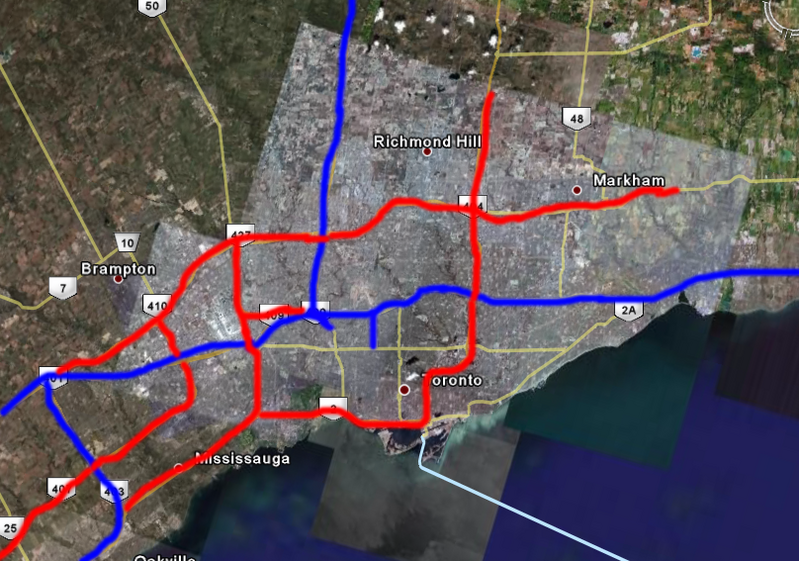Re: Gas tax
I wonder if internal polling and focus groups convinced Miller that road tolls and so called congestion tax is popular with a vocal few downtown but very unpopular with the majority. It really would be the kiss of death for any Mayor to go ahead with such a plan. It's politically safer to plead to senior levels of government to boost funding for the TTC.
BoL.
Link to
article
Miller: 'Amazing' TTC needed
By ZEN RURYK, CITY HALL BUREAU CHIEF
Mayor David Miller yesterday urged people to focus on improving public transit -- not the possibility of road tolls -- as the city moves to fight climate change.
The civic leader addressed about 400 people at a University of Toronto forum prior to last night's appearance at the institution by former U.S. vice-president and environmental crusader Al Gore.
"In Toronto, we have good public transit, but we need to have amazing public transit," Miller said, following his speech.
"We need people in every part of the city to be able to live the way some people do who live near a subway and work downtown," he added.
BOOST FUNDING
Miller has repeatedly called for senior levels of government to boost funding for the financially strapped TTC. The mayor has opposed road tolling, saying it's not fair to hit drivers with charges when they don't have alternatives.
The city is developing a plan to fight climate change that could include measures such as parking levies or even tolls.
During last fall's election, Miller promised to battle global warming and to achieve a 20% reduction in smog-causing pollutants in Toronto by 2012.
Councillor Brian Ashton, chairman of the city's planning and transportation committee, will leave this weekend for a trip to London, England, to examine that city's transportation plan. Miller said Ashton will look at their controversial congestion tax. He added that a report on Toronto's plan to fight global warming is expected next month.
Miller promised to battle global warming and to achieve a 20% reduction in smog-causing pollutants in Toronto by 2012
Very ambitious. Any suggestions for the Mayor to achieve this goal?





